10 Best Herbal Capsules For Ulcerative Colitis

Herbal capsules for ulcerative colitis are increasingly being explored as complementary therapies to support conventional treatments.
These capsules often contain a blend of anti-inflammatory and immune-modulating herbs such as turmeric, licorice root, and aloe vera, which may help reduce inflammation in the colon. Some studies suggest that certain herbs can enhance gut health and alleviate symptoms like diarrhea and abdominal pain associated with the condition. However, it is important to consult a healthcare provider before using herbal supplements, as they may interact with medications or have side effects.
While herbal capsules may offer some relief, they should not replace prescribed medical treatments for ulcerative colitis.
Table of Contents
- 1. Turmeric (Curcuma longa)
- 2. Ginger (Zingiber officinale)
- 3. Aloe vera (Aloe barbadensis)
- 4. Thistle (Silybum marianum)
- 5. Licorice (Glycyrrhiza glabra)
- 6. Indian barberry (Berberis aristata)
- 7. Indian gooseberry (Emblica officinalis)
- 8. Chebuli (Terminalia chebula)
- 9. Black pepper (Piper nigrum)
- 10. Red sage (Salvia miltiorrhiza)
1. Turmeric (Curcuma longa)

Curcuma longa, commonly known as turmeric, has been widely studied for its potential therapeutic effects on inflammatory bowel diseases, including ulcerative colitis.
The active compound in curcuma longa, curcumin, exhibits potent anti-inflammatory, antioxidant, and immunomodulatory properties that may help reduce intestinal inflammation. Herbal capsules containing curcuma longa are often used as a complementary therapy to manage symptoms and support gut health in individuals with ulcerative colitis. However, the bioavailability of curcumin is low, so formulations with enhanced absorption, such as those combined with black pepper extract or phospholipids, are recommended for better efficacy.
While some research suggests benefit, more clinical trials are needed to establish its role as a standard treatment for ulcerative colitis.
2. Ginger (Zingiber officinale)

Zingiber officinale, commonly known as ginger, has been traditionally used for its anti-inflammatory and digestive benefits, making it a potential herbal remedy for ulcerative colitis.
Studies suggest that ginger may help reduce inflammation in the colon, which is a key factor in the progression of ulcerative colitis. Herbal capsules containing zingiber officinale are often used as a complementary therapy to support conventional treatments and manage symptoms such as abdominal pain and diarrhea. However, while some research supports its use, more clinical trials are needed to establish its efficacy and safety in treating this condition.
As with any supplement, it is important to consult a healthcare provider before incorporating ginger capsules into a treatment plan for ulcerative colitis.
3. Aloe vera (Aloe barbadensis)
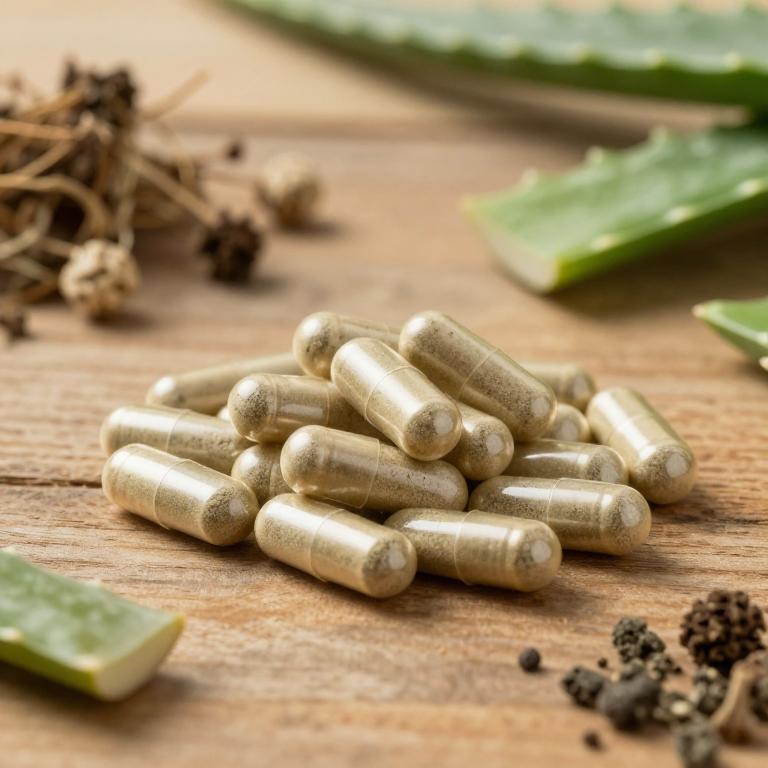
Aloe barbadensis, commonly known as aloe vera, has been studied for its potential benefits in managing ulcerative colitis, an inflammatory bowel disease characterized by chronic inflammation of the colon.
The herbal capsules derived from aloe vera contain polysaccharides, enzymes, and antioxidants that may help reduce inflammation and promote tissue repair in the gastrointestinal tract. Some preliminary research suggests that aloe vera may help alleviate symptoms such as diarrhea, abdominal pain, and rectal bleeding in patients with ulcerative colitis. However, more clinical trials are needed to confirm its efficacy and safety as a complementary therapy.
It is important to consult a healthcare provider before using aloe barbadensis capsules, especially for individuals with existing medical conditions or those taking other medications.
4. Thistle (Silybum marianum)

Silybum marianum, also known as milk thistle, is a herbal remedy that has been studied for its potential benefits in managing ulcerative colitis, an inflammatory bowel disease characterized by chronic inflammation of the colon.
The active compound in silybum marianum, silymarin, is believed to possess anti-inflammatory, antioxidant, and hepatoprotective properties that may help reduce intestinal inflammation and support gut health. Some preliminary research suggests that silymarin may modulate the immune response and protect the intestinal lining, potentially alleviating symptoms associated with ulcerative colitis. However, while these findings are promising, more clinical trials are needed to fully establish its efficacy and safety in treating this condition.
As with any supplement, it is advisable to consult a healthcare provider before using silybum marianum, especially for individuals with existing health conditions or those on medication.
5. Licorice (Glycyrrhiza glabra)

Glycyrrhiza glabra, commonly known as licorice root, has been traditionally used in herbal medicine for its anti-inflammatory and mucoprotective properties.
When formulated into capsules, glycyrrhiza glabra may offer potential benefits for individuals with ulcerative colitis by helping to reduce intestinal inflammation and promote gut healing. However, its use should be approached with caution due to the risk of side effects such as hypertension and electrolyte imbalances, particularly with prolonged use. Some studies suggest that specific preparations of licorice root, such as deglycyrrhizinated licorice, may be safer and more effective for managing inflammatory bowel conditions.
As with any herbal supplement, it is important to consult a healthcare provider before incorporating glycyrrhiza glabra capsules into a treatment plan for ulcerative colitis.
6. Indian barberry (Berberis aristata)
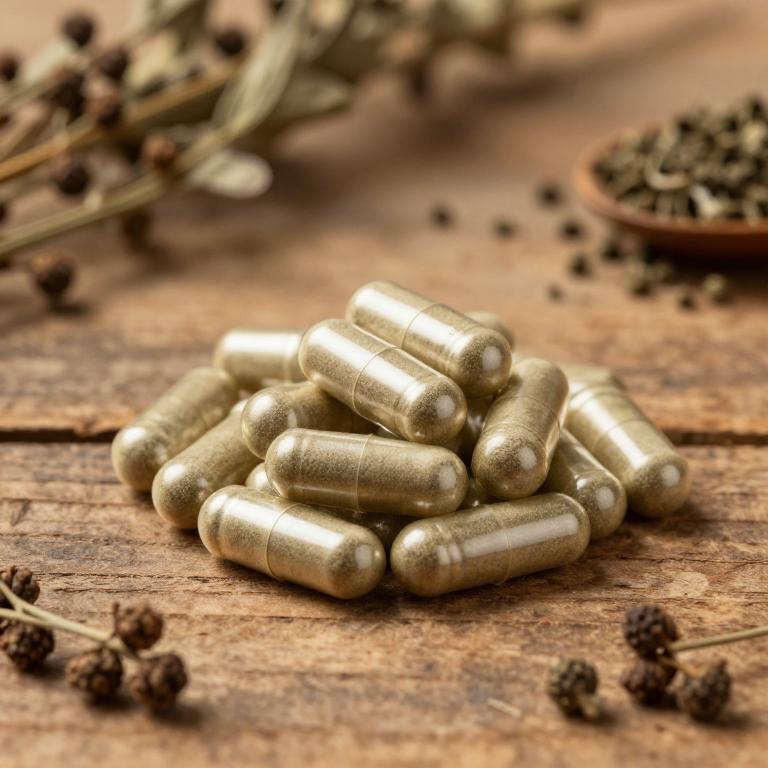
Berberis aristata, commonly known as the Indian barberry, contains the active compound berberine, which has been studied for its anti-inflammatory and antimicrobial properties.
Herbal capsules made from Berberis aristata are often used as a complementary therapy for ulcerative colitis, a chronic inflammatory bowel disease. Research suggests that berberine may help reduce intestinal inflammation and improve gut microbiota balance, potentially alleviating symptoms associated with the condition. However, it is important to consult a healthcare provider before using these capsules, as they may interact with certain medications or have side effects in some individuals.
While not a cure, Berberis aristata capsules may offer supportive benefits when used as part of a comprehensive treatment plan for ulcerative colitis.
7. Indian gooseberry (Emblica officinalis)
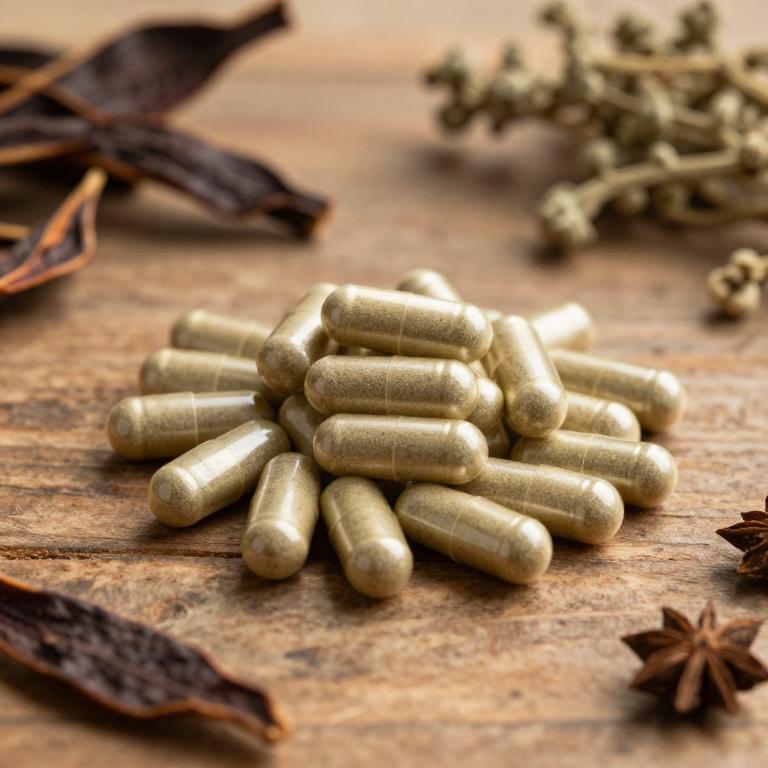
Emblica officinalis, also known as Indian gooseberry, is a traditional Ayurvedic herb that has been studied for its potential benefits in managing ulcerative colitis, an inflammatory bowel disease characterized by chronic inflammation of the colon.
The herb is rich in antioxidants, vitamins, and anti-inflammatory compounds that may help reduce oxidative stress and inflammation in the gastrointestinal tract. Some preliminary research suggests that Emblica officinalis herbal capsules could support gut health and aid in the management of symptoms associated with ulcerative colitis. However, while these capsules may complement conventional treatments, they should not replace medical advice or prescribed therapies.
It is important for individuals with ulcerative colitis to consult with a healthcare provider before incorporating Emblica officinalis into their treatment regimen.
8. Chebuli (Terminalia chebula)
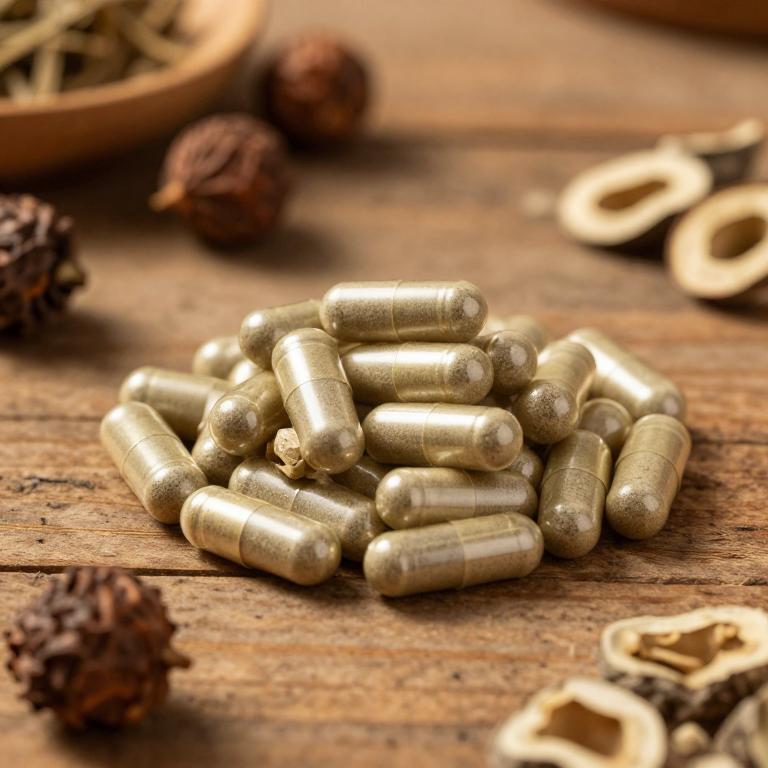
Terminalia chebula, also known as Haritaki, is a traditional Ayurvedic herb commonly used in herbal formulations for its anti-inflammatory and antioxidant properties.
Terminalia chebula herbal capsules are often prescribed as a complementary therapy for ulcerative colitis due to their potential to reduce intestinal inflammation and promote mucosal healing. These capsules contain standardized extracts of the fruit, which may help in modulating gut immunity and reducing oxidative stress in the colon. While some studies suggest possible benefits, more clinical research is needed to fully establish their efficacy and safety in managing ulcerative colitis.
Patients should consult with a healthcare provider before using these capsules as part of their treatment plan.
9. Black pepper (Piper nigrum)
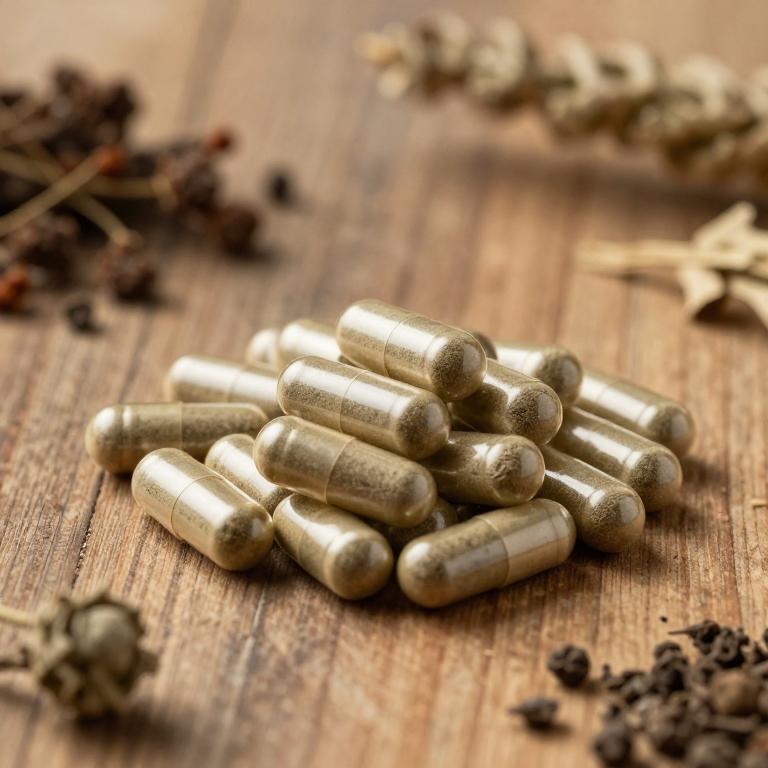
Piper nigrum, commonly known as black pepper, has been traditionally used in herbal medicine for its anti-inflammatory and antioxidant properties.
Recent studies suggest that the active compound piperine in black pepper may help reduce intestinal inflammation, making it a potential complementary therapy for ulcerative colitis. Piper nigrum herbal capsules are often used to support digestive health and may aid in symptom management when used alongside conventional treatments. However, it is important to consult a healthcare provider before incorporating these capsules into a treatment regimen for ulcerative colitis.
While promising, more clinical research is needed to fully understand its efficacy and safety in managing this chronic inflammatory bowel disease.
10. Red sage (Salvia miltiorrhiza)
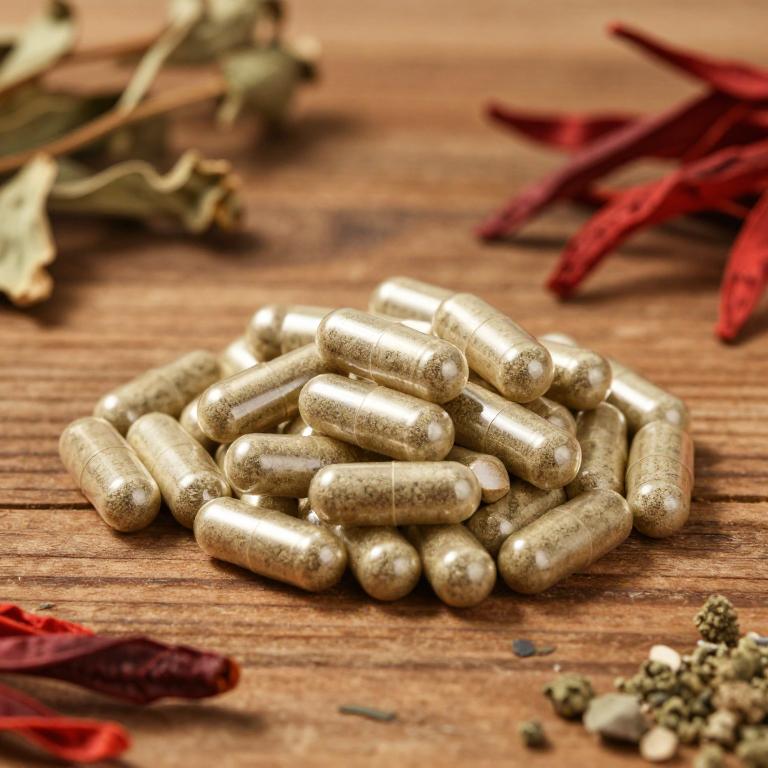
Salvia miltiorrhiza, also known as Danshen, is a traditional Chinese herb that has been studied for its potential therapeutic effects on inflammatory bowel diseases, including ulcerative colitis.
The herbal capsules containing Salvia miltiorrhiza are believed to exert anti-inflammatory, antioxidant, and immunomodulatory actions that may help reduce intestinal inflammation and promote tissue repair. Preliminary research suggests that the active compounds in Salvia miltiorrhiza, such as tanshinones, may inhibit the activity of pro-inflammatory cytokines involved in ulcerative colitis. However, while some studies show promising results, more clinical trials are needed to fully establish its efficacy and safety in treating this condition.
As with any herbal supplement, it is important to consult a healthcare professional before using Salvia miltiorrhiza for ulcerative colitis.